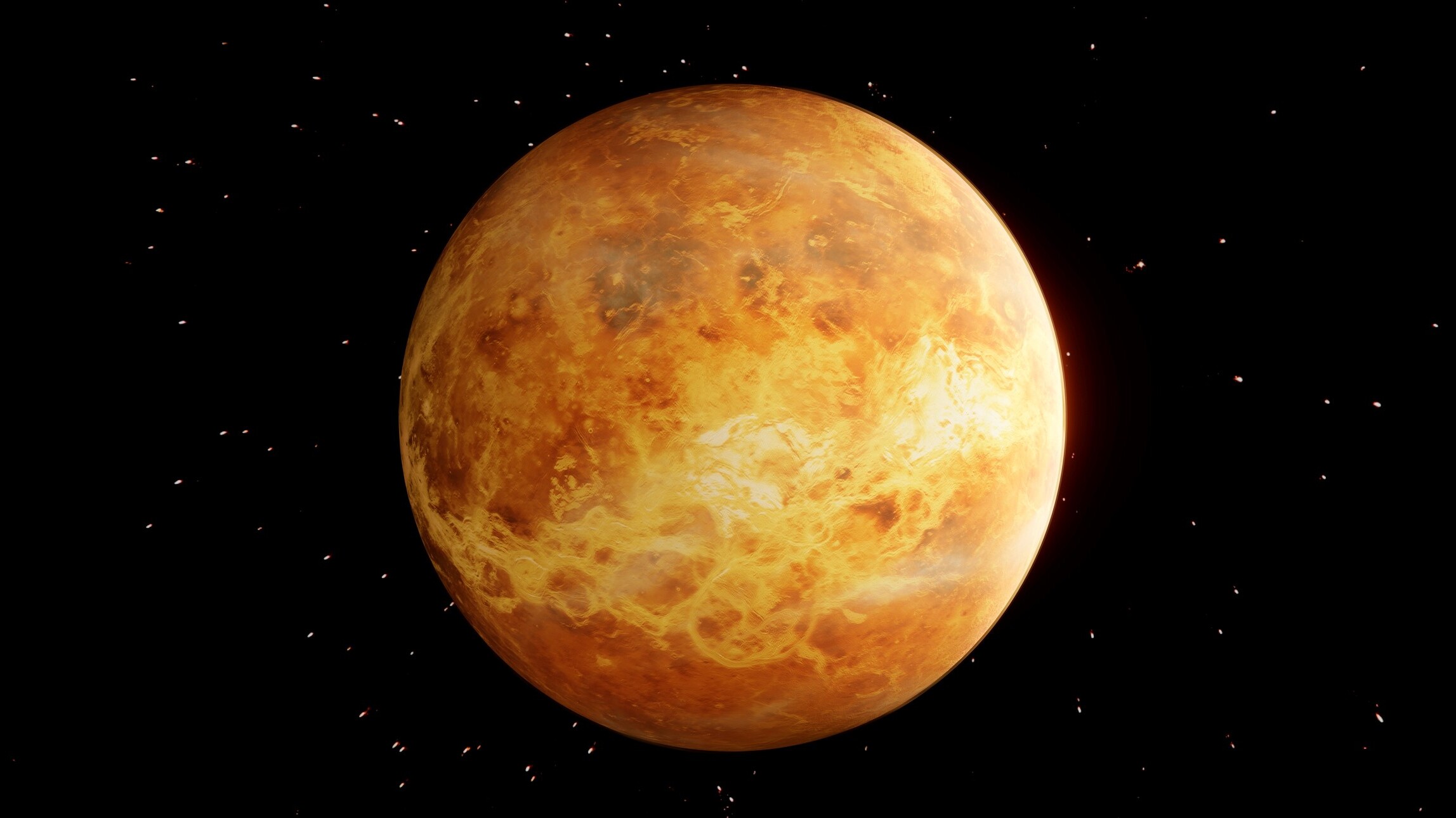
Venus, often called Earth's twin, is a planet full of surprises. Did you know Venus spins the opposite way to most planets? This means if you stood on its surface, the sun would rise in the west and set in the east. Venus is the hottest planet in our solar system, even though Mercury is closer to the Sun. Its thick atmosphere traps heat in a runaway greenhouse effect, making temperatures soar. Unlike Earth, Venus has no moons or rings. Its surface is covered with volcanoes and vast plains of lava. Despite its beauty, Venus is a harsh place. Its clouds are made of sulfuric acid, and the pressure on its surface is crushing. Yet, its mysteries continue to intrigue scientists and space enthusiasts alike. Venus remains a fascinating subject for exploration and study.
Venus: The Mysterious Planet
Venus, often called Earth's twin, is a fascinating planet with many intriguing features. Its thick atmosphere and scorching temperatures make it a subject of interest for scientists and space enthusiasts alike. Let's explore some captivating facts about this enigmatic planet.
-
Second Planet from the Sun
Venus is the second planet in our solar system, orbiting between Mercury and Earth. Its proximity to the Sun influences its extreme temperatures and atmospheric conditions. -
Similar Size to Earth
Venus is almost the same size as Earth, with a diameter of about 12,104 kilometers. This similarity in size is why it's often referred to as Earth's twin. -
Rotates Backwards
Unlike most planets, Venus rotates in the opposite direction. This means the Sun rises in the west and sets in the east on Venus. -
Longest Day in the Solar System
A single day on Venus, from sunrise to sunrise, lasts about 243 Earth days. This is longer than its year, which is only 225 Earth days. -
Hottest Planet
Despite not being the closest to the Sun, Venus is the hottest planet. Its thick atmosphere traps heat, leading to surface temperatures of around 465 degrees Celsius. -
Thick Atmosphere
Venus's atmosphere is composed mainly of carbon dioxide, with clouds of sulfuric acid. This dense atmosphere creates a strong greenhouse effect. -
No Moons or Rings
Unlike many other planets, Venus has no moons or rings. Its solitary nature adds to its mysterious allure. -
Volcanic Landscape
The surface of Venus is dotted with volcanoes and vast lava plains. It's believed to have more volcanoes than any other planet in the solar system. -
High Atmospheric Pressure
The pressure on Venus's surface is about 92 times that of Earth's. This intense pressure would crush most spacecraft attempting to land. -
Brightest Natural Object in the Night Sky
After the Moon, Venus is the brightest natural object in our night sky. Its brightness is due to its highly reflective clouds.
Venus's Unique Orbit and Climate
Venus's orbit and climate are unlike any other planet in our solar system. Its slow rotation and thick atmosphere contribute to its unique weather patterns.
-
Circular Orbit
Venus has the most circular orbit of any planet, with an eccentricity of less than 0.01. This means its distance from the Sun remains relatively constant. -
No Seasons
Due to its almost circular orbit and minimal axial tilt, Venus experiences little to no seasonal changes. -
Runaway Greenhouse Effect
The greenhouse effect on Venus is so extreme that it has led to a runaway effect, making the planet unbearably hot. -
Super-Rotating Atmosphere
While the planet rotates slowly, its atmosphere moves much faster, circulating the planet in just four Earth days. -
Constant Cloud Cover
Venus is perpetually shrouded in thick clouds, making it impossible to see its surface with visible light.
Exploration of Venus
Human curiosity has led to numerous missions to Venus, each revealing more about this mysterious world.
-
First Planet Visited by a Spacecraft
Venus was the first planet visited by a spacecraft. NASA's Mariner 2 flew by in 1962, providing valuable data. -
Soviet Venera Program
The Soviet Union's Venera program successfully landed several probes on Venus, with Venera 7 being the first to transmit data from the surface in 1970. -
Magellan Mission
NASA's Magellan spacecraft, launched in 1989, mapped 98% of Venus's surface using radar, revealing its volcanic and tectonic features. -
Future Missions Planned
Several space agencies, including NASA and ESA, have plans for future missions to Venus, aiming to study its atmosphere and geology in greater detail. -
Potential for Life
While the surface is inhospitable, scientists speculate that microbial life could exist in the more temperate upper atmosphere of Venus.
Venus: A Cosmic Wonder
Venus, often called Earth's twin, is a planet full of mysteries and extremes. Its thick atmosphere traps heat, making it the hottest planet in our solar system. Unlike most planets, Venus spins in the opposite direction, causing the sun to rise in the west and set in the east. Its surface pressure is crushing, about 92 times that of Earth, and its clouds are made of sulfuric acid. Despite these harsh conditions, Venus has fascinated scientists for centuries. Its volcanoes, mountains, and vast plains offer clues about its past. Space missions continue to study Venus, hoping to unlock secrets about its climate and geology. Understanding Venus better could even shed light on Earth's future. So, whether you're a budding astronomer or just curious, Venus remains a captivating subject in the vast universe. Keep looking up and wondering about the wonders of space!
Was this page helpful?
Our commitment to delivering trustworthy and engaging content is at the heart of what we do. Each fact on our site is contributed by real users like you, bringing a wealth of diverse insights and information. To ensure the highest standards of accuracy and reliability, our dedicated editors meticulously review each submission. This process guarantees that the facts we share are not only fascinating but also credible. Trust in our commitment to quality and authenticity as you explore and learn with us.


